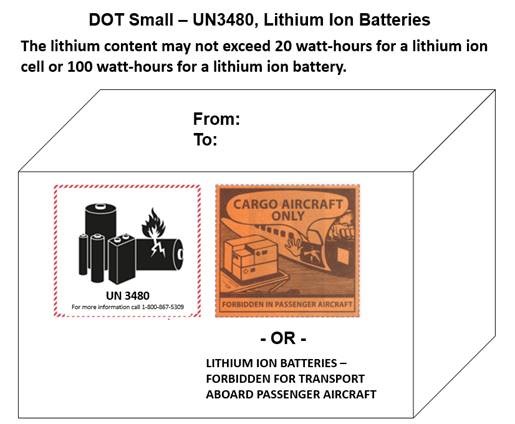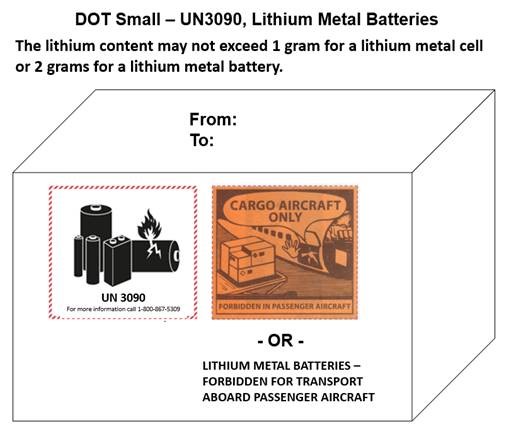DOT Releases New Rules for Lithium Battery Shippers
On March 6, 2019 the Department of Transportation Pipeline and Hazardous Materials Safety Administration released an Interim Final Rule (IFR) on enhanced safety provisions for transporting lithium batteries.
The rule added additional marking and labeling requirements for lithium battery shipments transported by road, rail and air.
The rule prohibits the transport of lithium ion cells and batteries as cargo on passenger aircraft; requires lithium ion cells and batteries to be shipped at not more than a 30 percent state of charge aboard cargo-only aircraft when not packed with or contained in equipment; and limits the use of alternative provisions for small lithium cell or battery shipments to one package per consignment.
The rule does not restrict passengers or crew members from bringing personal items or electronic devices containing lithium cells or batteries aboard aircraft.
The comment period on the interim final rule is open until May 6, 2019, but the rule is effective immediately.
Lithium batteries warrant extra safety provisions because, unlike other hazardous materials, lithium batteries contain both a chemical and an electrical hazard. “This combination of hazards, when involved in a fire encompassing significant quantities of lithium batteries, may exceed the fire suppression capability of the aircraft and lead to a catastrophic loss of the aircraft,” reads the rule.
A major marking/labeling requirement is also included in the IFR that impacts road and rail shipments containing excepted lithium ion cells (≤ 20 Wh) and batteries (≤ 100 Wh) shipped in accordance with 49 CFR § 173.185(c). These types of shipments were already required to display the lithium battery mark, but now they must also display either the marking “LITHIUM ION BATTERIES—FORBIDDEN FOR TRANSPORT ABOARD PASSENGER AIRCRAFT’’ or be labeled with a ‘‘CARGO AIRCRAFT ONLY’’ label.
It is important to note that this requirement also applies to lithium-ion cells and batteries contained in/packed with equipment (UN3481) where the package exceeds 5 kg.
This new IFR will generally harmonize DOT and ICAO regulations—further promoting safety across the industry by taking steps to ensure standalone lithium-ion batteries are not inadvertently loaded to aircrafts, which can happen with multi-modal transportation.
Unlike most transport rule changes, there is no a transition period. This makes it critical for companies transporting lithium batteries to understand the changes and ensure their organizations are compliant with the new regulations immediately.


For additional information on how to ship lithium batteries please see our Program Catalog.
